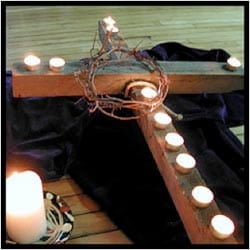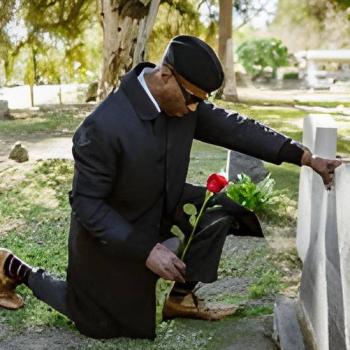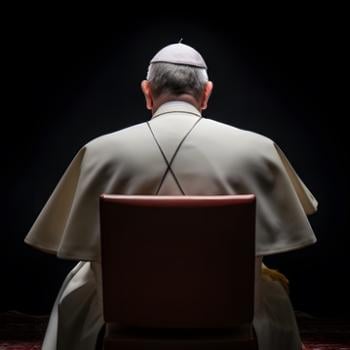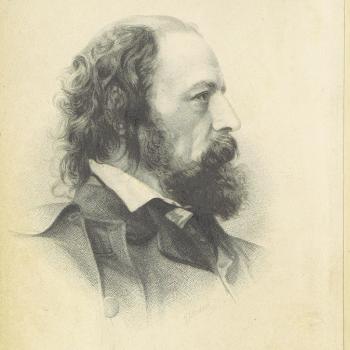 Meditations:
Meditations:
Maundy Thursday: Forgiving God
Good Friday: Entering the Darkness
Holy Saturday: Holding Tragedy In Your Arms
Easter: Opening to the Complexity
Bright Monday: A New Vision
Maundy Thursday: Forgiving God
I never clean out the car. And at no time was this unfortunate habit more perilous than when I was a full-time stay-at-home dad. On any given day, depending on the amount of sunshine, our van would have a half-dozen apple cores in various shades of brown, a three-week-old diaper full of pee, and all but two of our sippy cups and to-go coffee cups, each with its own little science experiment growing inside.
It drives my wife up the wall. And I know it drives her up the wall. But I still do it.
Now, it's not wrong to fill a van full of trash, technically speaking. When I was a college student, I had 20-page papers from the previous semester decomposing into compost in my trunk and a two-year-old splatter of chocolate pudding on the ceiling. But in the context of my marriage, leaving the van full of trash was very, very wrong.
So, I never fail to ask for forgiveness for my sins against wife and van.
It's how relationships go. You need forgiveness even when no real sin was committed. You ask forgiveness because of the hurt the other person experiences, regardless of whether it is your own fault or the obsessive-compulsive need for cleanliness of the other. You ask for forgiveness to continue the relationship, to restore it humbly.
In our relationships with God, most of us, I'd wager, have no problem asking God for forgiveness, for the things we have done, the things we have left undone, and the things we're planning on doing even though we know we shouldn't, like not cleaning out a van. Generally, I suppose we are content with this setup, and it works for the most part. But, when I look at the world, the suffering of consciousness, the evil that infects, the despair of life, the hunger that distends bellies, the enslavement of the poor to the rich, and the rich to riches . . . when I look myself, the way I am made, my own experiences of despair and hopelessness . . . I see the kind of brokenness that begs for forgiveness, but of a wholly different kind than the prayers we say while pounding our chests.
At some point, we have to learn to forgive God. My guess is that most of us don't want anything to do with forgiving God, either because we rather like the grudges we hold against the Almighty or because we cringe at the idea of God needing forgiveness. But to truly live in relationship to God we have to be capable of forgiving God, of looking at the world God created and ourselves within it, and say to God, "I will love you in spite of this mess, and I forgive you even if it turns out you meant it to be this way all along."
When I look at my life, what keeps me from joy, from hope, from God is my inability to forgive God. Regardless of its theological correctness, I've experienced it as true. I've tried to create the right theological formula to avoid the inevitable, but eventually, all my theodicies have failed to register deep within my soul, in the places of pain. That question—why a good, all-loving, all-powerful God allows such profound evil and suffering in the world—plagues many religions and has inspired a variety of explanations. Perhaps God is limited. Perhaps our free will limits God. Perhaps suffering really is an ages-old punishment for humanity's sinfulness in some imaginary garden. Perhaps it all the evil of the world is payback for our sins. Perhaps evil has only to do with humanity and nothing to do with God, that it's a problem we created and so it's a problem that is also ours to repair.
But there's another option, a more difficult option: to forgive God.
Now, comparatively, it's easy to forgive humans. We're so deeply flawed that the only response is compassion. If I'm wronged, all I have to do is take a small, brief trip in my memory to find a moment when I wrought the same sin, or at least, wanted to. Unconditional forgiveness is the most basic form of humanity because it is the attitude most foundationally based on our human experiences.




